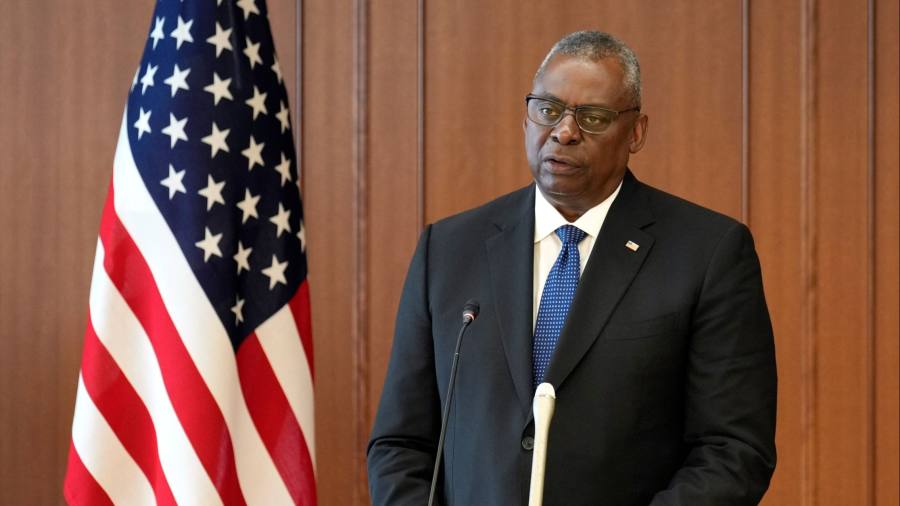
US defence secretary Lloyd Austin has called on Beijing to resume bilateral security talks, warning that incidents could “spiral out of control” if China’s military continues to take provocative action in international waters and airspace.
At a news conference in Tokyo, Austin said it was “unfortunate” that Beijing declined the Pentagon’s request for him to meet China’s defence minister Li Shangfu at a security forum in Singapore this week.
“I’m concerned about . . . having an incident that could very, very quickly spiral out of control,” Austin said following a meeting with his Japanese counterpart Yasukazu Hamada on Thursday. “I think defence departments should be talking to each other on a routine basis.”
The warning comes as Austin prepares to attend the Shangri-La Dialogue security forum in Singapore, where the issue of dangerous manoeuvres is likely to be a subject of discussion. The Pentagon on Tuesday accused a Chinese fighter jet of making an “unnecessarily aggressive manoeuvre” near a US military aircraft over the South China Sea last week.
Ahead of the same forum a year ago, the US raised concerns about the rising number of incidents of Chinese aircraft allegedly conducting alarming operations in the vicinity of US, Canadian and Australian aircraft. US officials had raised the issue with their counterparts when Austin met then-Chinese defence minister Wei Fenghe.
“We are deeply concerned by the PRC’s [People’s Republic of China] coercive behaviour and its attempts to undermine the rules-based international order,” said Austin.
US defence officials have warned that the lack of engagement between the militaries amid rising geopolitical tensions means that they do not have a crisis communications mechanism in the event of an accident at sea or in the air. In 2001, a US spy plane collided with a Chinese fighter jet off the coast of Hainan Island, forcing the American aircraft to make an emergency landing.
Hamada also stressed the importance of maintaining dialogue with China, pointing to the defence hotline Tokyo and Beijing began operating last month to minimise the risk of accidental confrontation between their militaries, according to a defence ministry official.
Beijing has rejected a meeting between Austin and Li at the Shangri-La Dialogue this year because the US has not lifted sanctions against its top defence official.
The Trump administration imposed sanctions against Li in 2018 in connection with China buying Russian fighters and missiles. The Pentagon had previously informed Beijing that the sanctions did not prohibit a meeting in Singapore, but Chinese officials have said it would be inappropriate while the sanctions remain in place.
The US and Japan on Thursday also discussed working together to develop hypersonic missile defence capabilities using interceptors and strengthening cyber security, intelligence and surveillance using drones. Austin said the countries would also co-operate on defence supply chains to deepen ties between their industrial bases.
A day after a failed North Korean attempt to launch a reconnaissance satellite into space, Hamada said the sides agreed to strengthen training and other areas of co-operation with allies including South Korea and Australia.